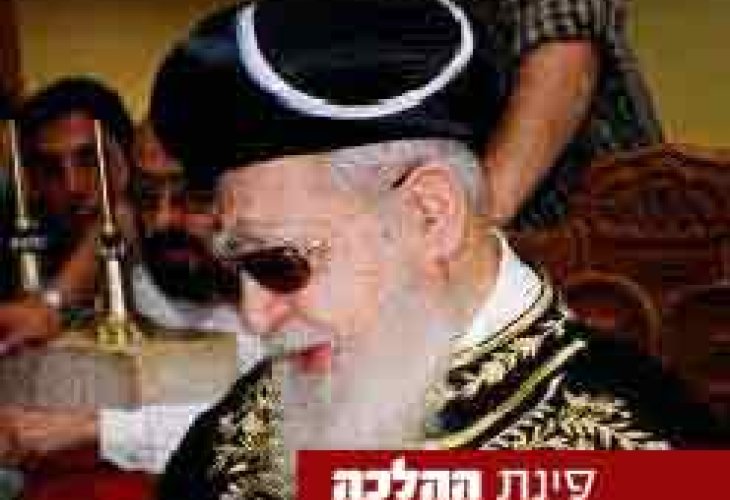Jewish Law
Including a Young Child in a Zimun
When two adults eat together with a child who has not yet reached the age of Bar Mitzvah, rabbinic authorities debate whether the child can be counted for a zimun (the invitation to recite Grace after Meals)
- Atar 'Halakha Yomit'
- |Updated

Question: Can a minor be included as the third person in a zimun?
Three or more people who eat a meal (with bread) together are obligated to recite a zimun before Birkat Hamazon (Grace After Meals). It is clear that "three people" refers to three adults, meaning individuals above age 13, while three young children are not permitted to recite a zimun before Birkat Hamazon.
If two adults eat together with a child who has not yet reached Bar Mitzvah, the early rabbinic authorities disagreed as to whether the child can be counted for a zimun. According to the Rif and Rambam even a young child can be included in a zimun (both a zimun of three or a zimun of ten, which includes Hashem's name in the zimun formulation). However, even according to the Rif, only a child who understands the concept of blessings and grasps that blessings are directed at Hashem can be included. A very young child who does not understand that blessings are directed at Hashem cannot be included, even in a zimun of three. (According to Rabbeinu Tam and other halachic authorities, even an infant in a cradle can be included, though most early authorities reject this position and do not rule in accordance with this opinion.)
In contrast, the Rosh rules that only someone who has reached the age of 13 can be included in a zimun, and a minor cannot be included, even if he understands that blessings are directed at Hashem. The Rema (in section 199) rules according to the Rosh, and this is the custom of Ashkenazic Jews.
On the other hand, the Shulchan Aruch rules in accordance with the Rif and Rambam (in a case where there is a dispute among the Rif, Rambam, and Rosh, the Shulchan Aruch generally sides with the majority opinion.) Indeed, this is the custom in Sephardic and Middle Eastern communities - when two adults dine with a child who understands that blessings are directed at Hashem, they include him in the zimun.
It is instructive to clarify from what age a child can be included in a zimun. The Rif writes that even a "nine or ten-year-old" who understands that blessings are directed at Hashem can be included, while the Rambam writes that even a child of seven or eight can be included in a zimun.
The Beit Yosef (the author of the Shulchan Aruch) explains that the Rif’s statement about nine or ten-year-olds is not meant to be an objective limitation, and he does not disagree with the Rambam on this matter. Rather, any child who understands to whom blessings are directed can be included in a zimun, from at least the age of seven or eight, in accordance with the sharpness of mind.
Therefore, according to the Shulchan Aruch, any child who understands that blessings are directed at Hashem, and is at least seven years old, can be included in a zimun.
Although initially Rabbi Ovadia Yosef (Yabia Omer, Part 2) writes that one should not answer “amen” in response to a blessing made by a child under age nine, in Yabia Omer (Part 8) he clarifies that this only applies to a child who is presumably not particularly sharp, as was common in previous generations. In our day and age, when all children attend school and learn about blessings in depth, it can be presumed that every child from the age of six understands that blessings are directed at Hashem.
The "Halachic Rulings of Rabbi Ovadiah Yosef" series is provided courtesy of the "Daily Halacha" website.
To subscribe to the "Daily Halacha" click on this link: www.halachayomit.co.il

